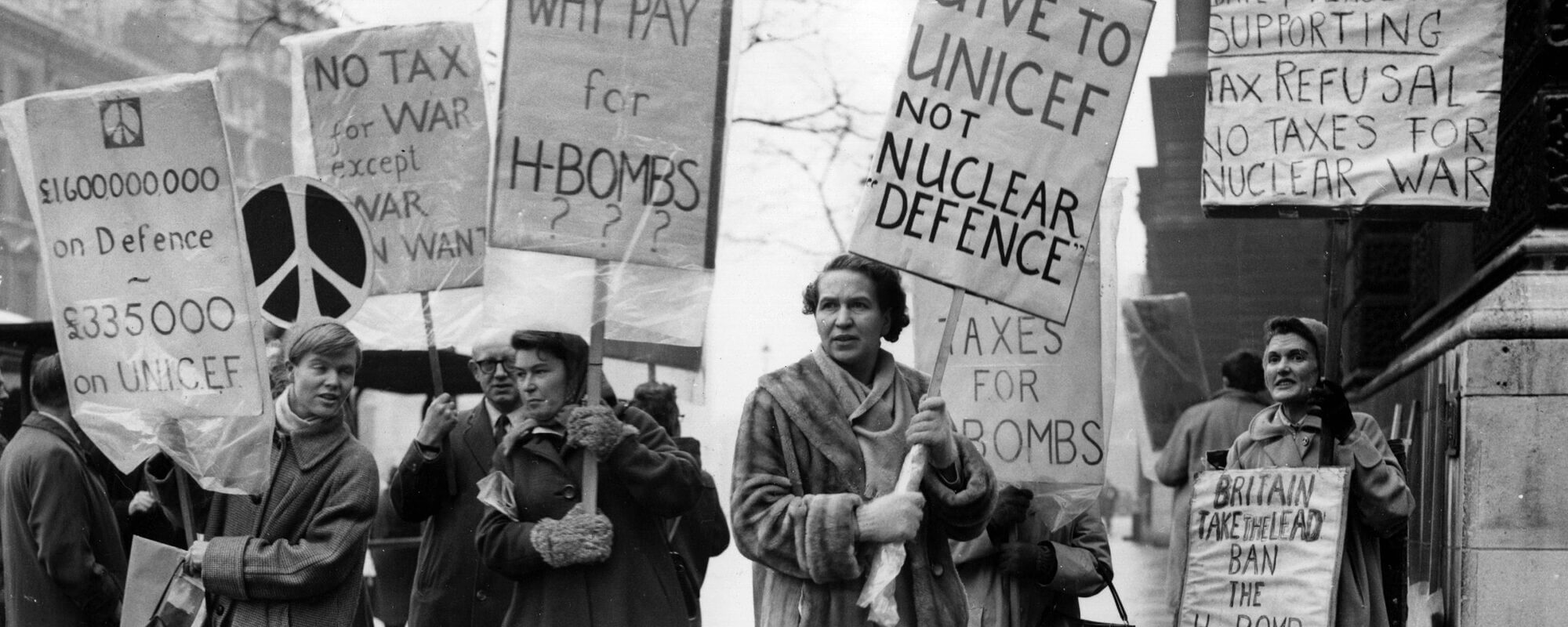“50 Faces of Black Leaders” highlights the many contributions of Black leaders to the public conversation on nuclear weapons and nuclear war. They come from diverse backgrounds, including activism, politics, diplomacy, and the arts. The list includes contemporary figures like Congresswoman Barbara Lee and Ambassador Bonnie Jenkins. And it reaches back to past generations, recognizing civil rights leaders such as Coretta Scott King and Bayard Rustin, as well as artists like Harry Belafonte, Eartha Kitt, and Langston Hughes. Together, these leaders represent a legacy of courage and action on what they saw as one of the compelling issues of their time.
Barbara Lee
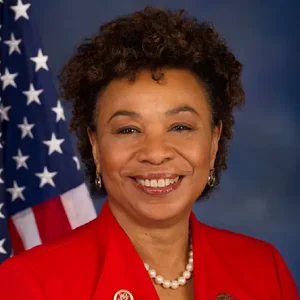
Lee is a long-time member of SANE/FREEZE (now known as Peace Action). She is arguably the most progressive foreign policy voice in Congress and an outspoken non-proliferation, arms control, and disarmament advocate. Additionally, she is well known for being the only member of congress to vote against use of force following 9/11.
“Lee also believes the Black Lives Matter Movement should be involved more in nonproliferation, arms control, and disarmament efforts because of its mobilization capacity and message on safety against police violence.”
Bonnie Jenkins
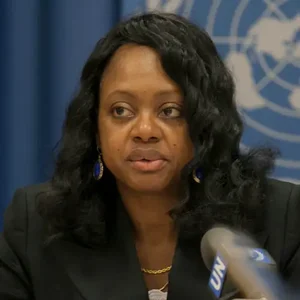
Having served in the Obama Administration as the U.S. Department of State‘s Coordinator for Threat Reduction Programs in the Bureau of International Security and Nonproliferation, Ambassador Jenkins is an expert on arms control and the nonproliferation of weapons of mass destruction.
She continually contributes to Outrider, where she voices her concern that women of color are the most vulnerable population threatened by global disaster, including the climate crisis and nuclear posturing.
Terrell Starr
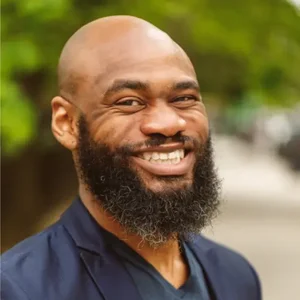
Terrell Starr is a regular contributor to Outrider. In 2018, Diversity in National Security Network and New America selected him as one of the top African-American experts in foreign policy and national security. Starr is also a 2018-2020 Global Strategist Association fellow, which is a fellowship that aims to place Black people in foreign policy discussions and positions of power.
Asa Phillip Randolph
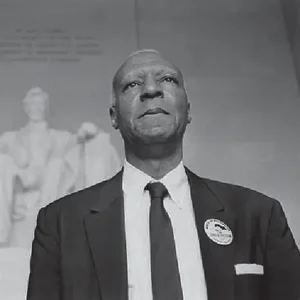
Randolph was one of the main speakers at the 1982 SANE Rally in Madison Square Garden, New York City. He directed the March on Washington movement to end employment discrimination and segregation within the defense industry.
Archibald Carey, Jr.
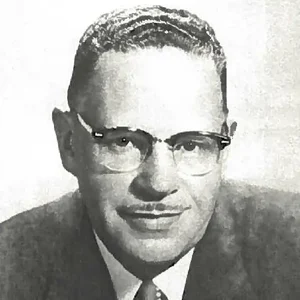
At the NAACP annual conference in 1946, Carey was the keynote speaker, and at the time a minister at Woodlawn A.M.E. church. During his speech he warned that the next war would entail nuclear destruction, and would kill “two-thirds of all people of the world.” He pleaded for peace and unity, stating “we must live in a new world which transcends color, class and creed…” (Archibald J. Carey Jr., keynote address, 37th Annual Conference of the NAACP, June 1946, NAACP Papers, Part II, Box A31, LOC.
Barbara Omolade
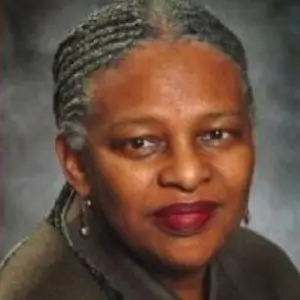
Barbara Omolade is a professor and author who writes and teaches about African-American and women’s issues. She has written essays on the topic of nuclear weapons, including 1984’s “Women of Color and the Nuclear Holocaust.”
Bayard Rustin
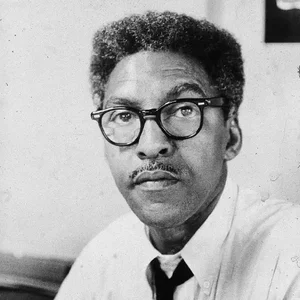
Bayard Rustin led a crusade against atomic weapons testing in Ghana by the French government. He likened the struggle for civil rights to the struggle for global disarmament.
“There must be unilateral disarmament action by a single nation, come what may. There must be no strings attached. We must be prepared to absorb the danger. We must use our bodies in direct action, non-cooperation, whatever is required to bring our government to its senses.”
Bayard Rustin, London, 1964
Eugene Gordon
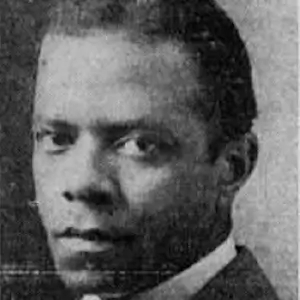
Eugene Gordon was one of the few black writers to continue to criticize the bomb following the anti-communism era in the U.S. He criticized the Black community’s complacency in nuclear weapon use and development as well.
He asked, “why aren’t U.S. negro newpapers as quick to report on and to stir up excitement around worldwide anxiety over the fallout of ashes of death as these papers are—and should always be—to report and editorialize on lynchings and denials of civil rights?” and warned, “the calcium properties of strontium 90 tend to introduce it into the body’s bone structure—be it a black or a white or a yellow or a brown body—and certain properties produce bone cancer and leukemia.”
Coretta Scott King
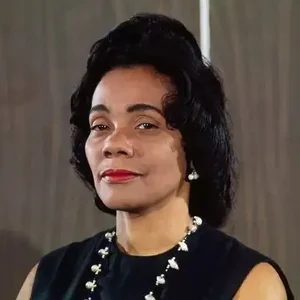
Coretta Scott King was a renowned civil rights activist, author, and wife of Dr. Martin Luther King Jr. She was an outspoken advocate for nuclear disarmament.
Edward Kennedy “Duke” Ellington
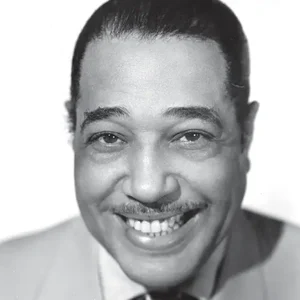
During the promotion of the Stockholm Peace Agreement Duke Ellington vocally supported it, stating “It is quite unimaginable that people should think of using the A-Bomb.” (“Prominent Americans Call for Outlawing Atomic Warfare,” PIC, press release, August 10,1950. PIC Papers, CDGA Collective Box, SCPC.)
Dick Gregory
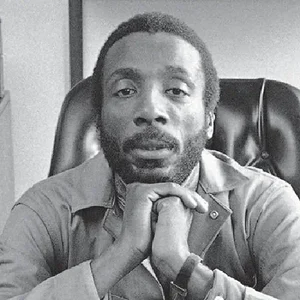
Dick Gregory actively opposed nuclear arms throughout his career. When asked by reporters why he was marching at the Ban The Bomb demonstration in New York City in 1982, Gregory said, “to write the unwritten page of the Constitution, dealing with the right to live free from nuclear terror.”
Eartha Kitt
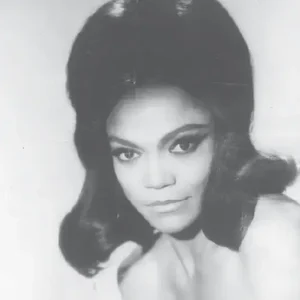
Eartha Kitt was a singer, actor, and social activist. She is known for her anti-war sentiments and membership in the Women’s International League for Peace and Freedom, which calls for the total elimination of nuclear weapons.
Eslanda “Essie” Goode Robeson
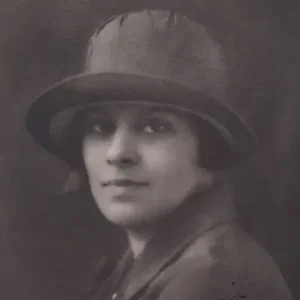
“Essie” and her husband Paul Robeson were among the first to link the struggle for civil rights back home with the independence from colonialism abroad and a world free from nuclear weapons. A copy of her lecture on the Atomic Age (1946) can be found in the Howard University archives.
Charlie “Bird” Parker
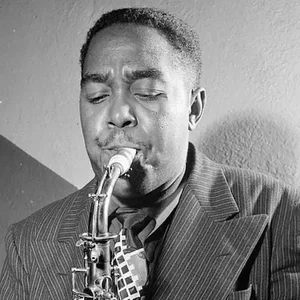
Charlie Parker said in 1950, “I’ve got a child, and I don’t want that child to die. I would like to take the plans of the H and A bombs and make sure they were destroyed. The power to decide whether humanity is destroyed or lives lies in the hands of the people—all of the people—not the political few.” He also endorsed the Stockholm Peace appeal.
Langston Hughes
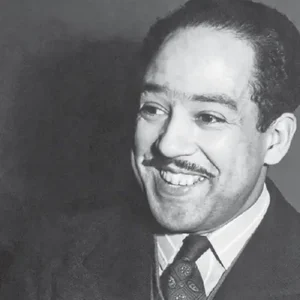
Langston Hughes was a vocal opponent of the atom bomb and wrote short stories highlighting its racist and colonialist uses.
Harry George Belafonte, Jr.
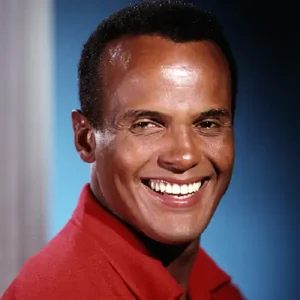
Belafonte, Jr. helped organize the New York City Performers and Artists for Nuclear Disarmament collective, and founded PAND International, among many other disarmament activities. He serves on the Advisory Council of the Nuclear Age Peace Foundation and is also a member of Hollywood for SANE.
Marian Anderson
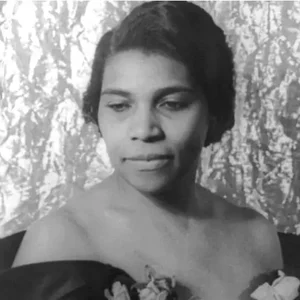
Marian Anderson, one of the most renowned opera singers of the 20th century, signed the ‘Ban The Bomb’ petition and spoke out against the use of nuclear weapons.
Lorraine Hansberry
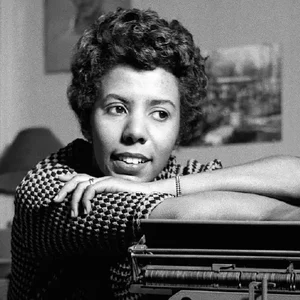
Lorraine Hansberry was a playwright. In her works she often linked freedom to nuclear disarmament. Her last two works were heavily centered on themes of nuclear armageddon.
“Measure Them Right”: Lorraine Hansberry and the Struggle for Peace, Robbie Lieberman
Gordon Hancock
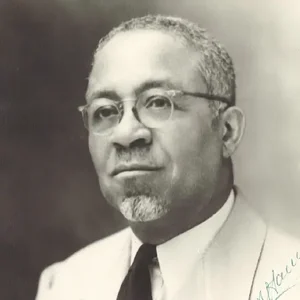
One of the earliest critics of the atomic bomb, he stated “Mankind will be the biggest loser in the great game of human destructiveness…” and “…we are all doomed,” in the Atlantic Daily World.
Julian Mayfield
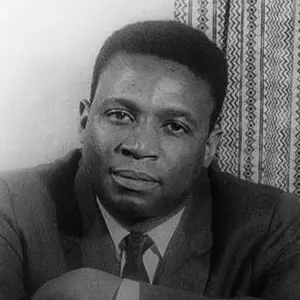
Mayfield was the editor of The World Without the Bomb in 1963.
“Consider, for example, how few of our fellow citizens manifest any concern that human civilization may be pulverized in a nuclear war at any hour.”
Julian Mayfield, The Young Radicals Symposium, 1962
Julian Bond
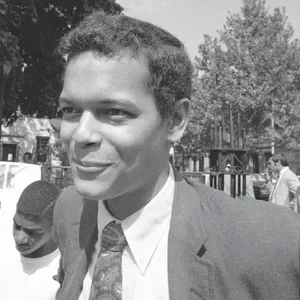
Starting in March 2010, Julian Bond served on the board of the Council for a Livable World. The council’s purpose is to campaign against the proliferation of nuclear weapons through lobbying and by supporting candidates who share their vision. Julian also supported the passing of the Iran nuclear deal in hopes that it would “prevent the proliferation of mankind’s most heinous weapon, [and] help avoid yet another disastrous war in the Middle East.”
Jasper Jefferies
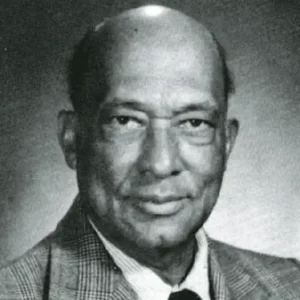
Jeffries felt that there would be a “mad race to arm with atomic weapons,” and saw the only way to stop this was to “banish war entirely.” (Scientists Speak on Peaceful Use of Bomb,” Norfolk Journal and Guide, April 19, 1947, p. A12.)
Zora Neale Hurtson
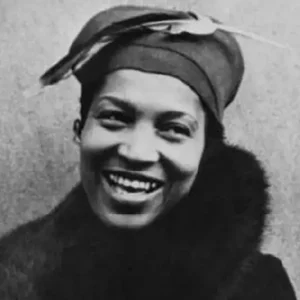
Zora Neale Hurtson was an influential and award-winning author. She called then-President Harry Truman the “butcher” of Asia following the nuclear bombings of Hiroshima and Nagasaki, and denounced the use of nuclear weapons on behalf of the U.S.
Walter Francis White
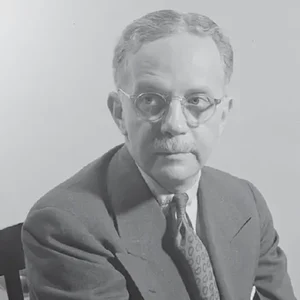
In addition to writing and voicing his opposition to nuclear weapons during his lifetime, under his leadership, the NAACP protested atomic bombings. He was also a member of the Nation Committee for Civil Control of Atomic Energy.
Martin Luther King, Jr.
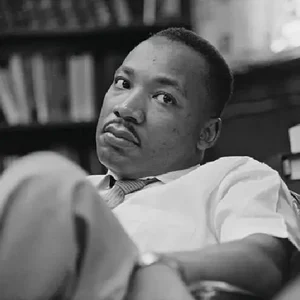
MLK consistently spoke out against the use and development of nuclear weapons. He called for an end to the arms race when receiving his Nobel Peace Prize Award.
W. E. B. Du Bois
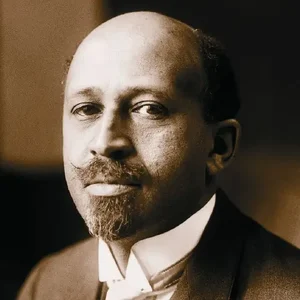
Du Bois created the “Ban The Bomb” petition and denounced US President Harry Truman for dropping nuclear bombs in Asia.
Thomas C. Fleming
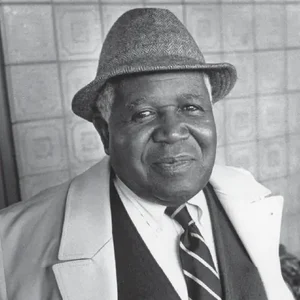
The main opinion-writer for the African American weekly, the San Francisco Sun-Reporter, was Thomas Fleming for over 60 years. Fleming felt that the threat of nuclear annihilation could motivate the Black community to dare to fight for their civil rights, since they lived “on borrowed time.”
Shirley Graham Du Bois
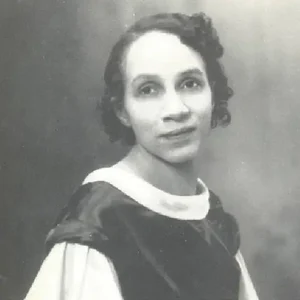
Shirley Graham Du Bois was a founding member of the Peace Information Center, an anti-war organization in the United States which provided information about peace movements across the globe. Du Bbois helped to promote the “Ban The Bomb” petition. In addition, she was a playwright, writer, and composer. She was the wife of W.E.B. Du Bois.
Erna Prather Harris
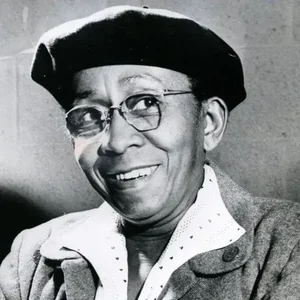
Erna Prather Harris was appointed to the National Board of the Women’s International League for Peace and Freedom (WILPF) in 1956 and regularly traveled to WILPF congresses in Europe and Asia. She was a member of the WILPF delegation that traveled to the U.S.S.R. in 1964 to participate in the U.S.-Soviet Women’s Seminar in Moscow that sought to build peaceful ties between women in the two countries.
Pearl Primus
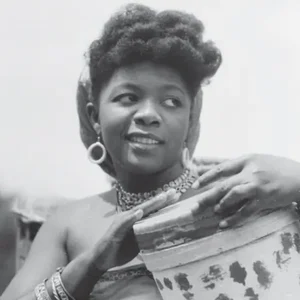
Pearl Primus was a dancer, choreographer, and anthropologist who practiced and researched African and African American dance. She backed the Stockholm Peace appeal.
Ralph David Abernathy, Sr.
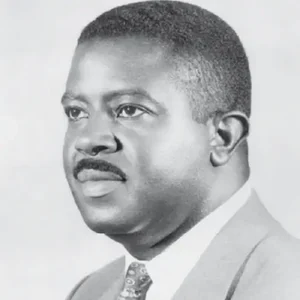
Abernathy Sr. supported the Sahara team that Bayard Rustin played a huge role in organizing, and urged further protest against nuclear testing. He continued to call for disarmament in The Continental Walk News in 1976.
Paul Robeson
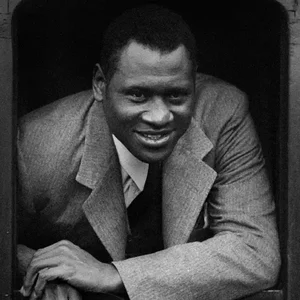
Robeson publicly condemned the atom bomb and consistently spoke about the relationship between nuclear weapons and colonialism.
Nat King Cole
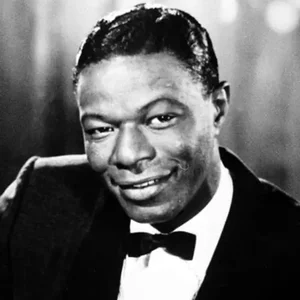
Cole held a membership in Hollywood for SANE. SANE represents the committee for a sane nuclear policy.
Sydney Poitier
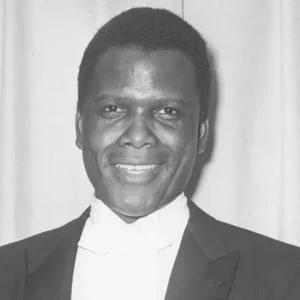
Member of Hollywood for SANE.
Bobby Seale
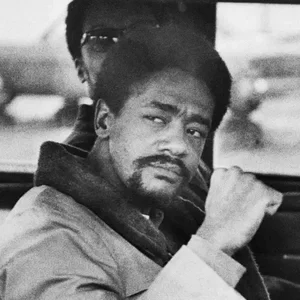
In the Black Panther Party’s first executive mandate, Bobby Seale mentions the party’s stance against profit, colonialism, and against the bomb.
James Baldwin
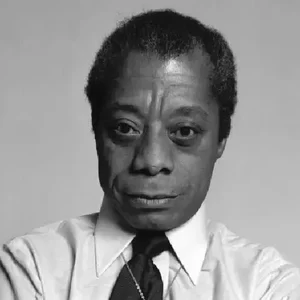
In the 1960’s, Baldwin joined the National Committee for a Sane Nuclear Policy (SANE) and was vocal about the inextricable link between racism, colonialism and atomic weapons.
Harold Washington
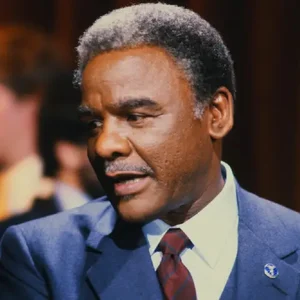
Washington was a lawyer, politician, and a former Mayor of Washington, D.C. He consistently spoke out against nuclear weapons and voted against nuclear proposals.
Hazel O’Leary
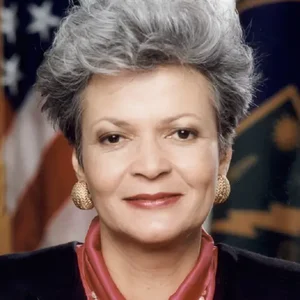
Hazel O’Leary was the U.S. Secretary of Energy for four years, under the Clinton administration. She pushed for an end to nuclear weapons testing and declassified documents pertaining to “vital nuclear information,” which led to reparations to the families of those involved in radiation testing and public knowledge of misuse of radioactive material by the U.S. government.
Ron Dellum
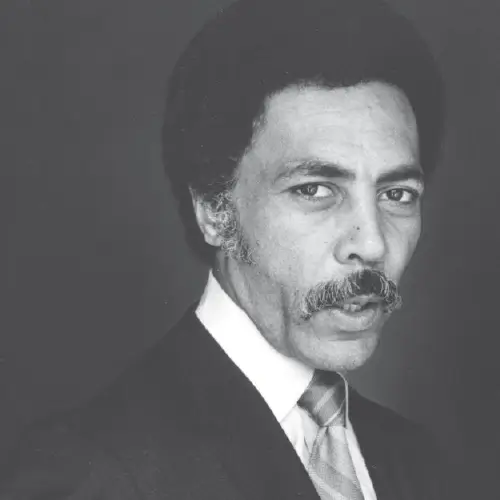
Dellum worked to cut the MX missile from Reagan’s military budget. He could not cut the MX missile from the military budget but was successful in minimizing the number of missiles from 200 down to 50.
James Earl Jones
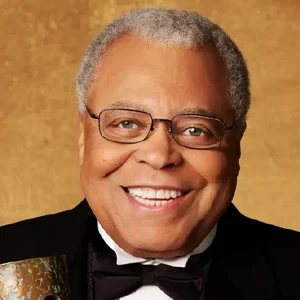
In 1983, Jones became a member of the revitalized Hollywood for SANE.
Jesse Jackson
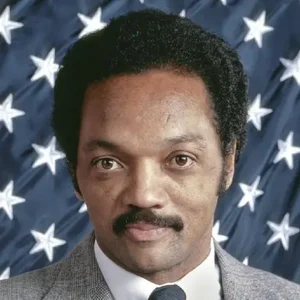
Jackson ran for the U.S. Presidency on a platform of anti-nuclear weapons use.
Raiford Chatman “Ossie” Davis
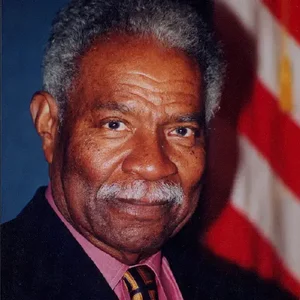
Davis was a member of Hollywood for SANE and a chair on the National Committee for a Sane Nuclear Policy.
Sammy Davis, Jr.
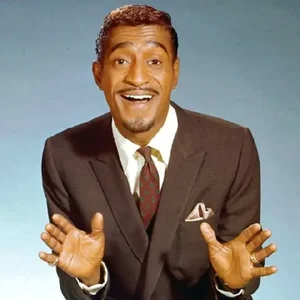
Member of Hollywood for SANE.
Andrea Miller
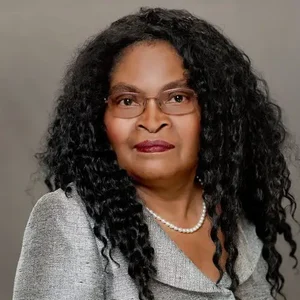
Andrea Miller is the founder of People Demanding Action and is a former congressional candidate. She advocates for clean energy and nuclear disarmament. She is particularly concerned with the budgetary consequences of continuing to build nuclear arms.
Brent Bowie
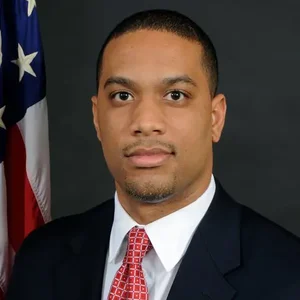
Bowie has served as the International Program Manager within the Defense Threat Reduction Agency’s Cooperative Threat Reduction Directorate since starting with the agency in 2013. During his tenure, he worked to reinvigorate the SS-24 Intercontinental Ballistic Missile Solid Rocket Motor Elimination Project in Ukraine.
Black American National Security & Foreign Policy Next Generation Leaders, New America
Rev. William J. Barber
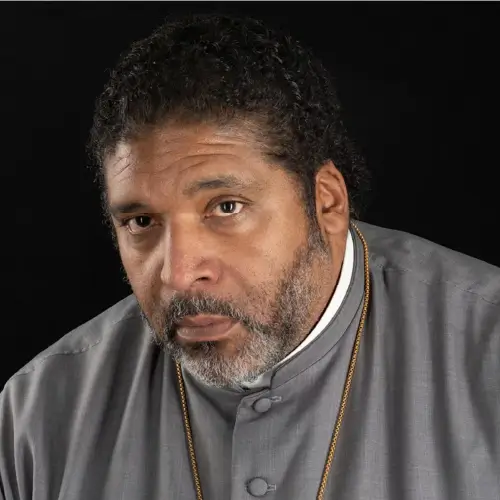
Barber’s political activism and sermons centered around the ideas that Dr. Martin Luther King put forth about militarism, racism and poverty being inextricably linked. The reverend is actively engaged in reducing the threat of nuclear war.
Rev. Paul Robeson Ford
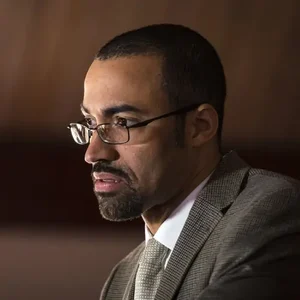
Ford shared his sermon “Build Housing Not Bombs,” at MIT’s conference Reducing the Threat of Nuclear War in 2017. He feels that disarmament is a moral issue.
Claire Collins Harvey
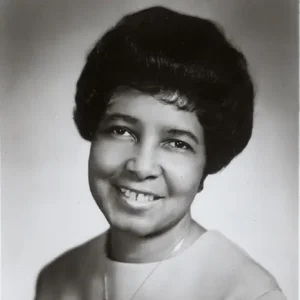
Claire Collins Harvey was a church and business leader in her Mississippi community. She was a civil rights and peace activist who attended nuclear peace conferences and advocated against nuclear weapons.
Joshua Bennett
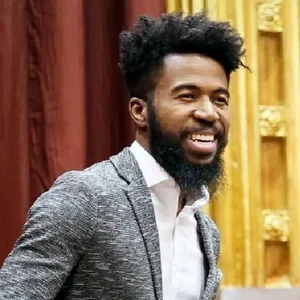
Bennett wrote “We Who Can Die Tomorrow: Black Optimism & the Atomic Bomb,” a response to Sonya Posmentier’s “Cultivation and Catastrophe: The Lyric Ecology of Modern Black Literature.” In the essay, Bennett ties together themes of the Black experience and survival with the threat of nuclear disaster as it has been expressed in the writings of Alice Walker, June Jordan and others, engaging with the intersections of empire, nuclear proliferation, and American apocalypticism.
Mareena Robinson Snowden

Mareena Robinson Snowden is a Senior Engineer in the National Security Analysis Department at Johns Hopkins Applied Physics Laboratory. She researches nuclear arms control verification, nonproliferation, and modernization.

